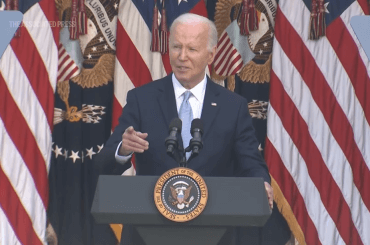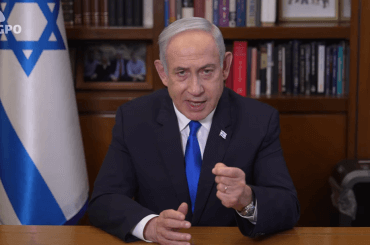Writers everywhere like anniversaries. But I myself don’t. I was asked to write a column of solace and expression for May 15, Nakba Day, in tribute to my people’s nostalgic yearning, and the combination of pain and honor my people feel after 74 years.
Of course, I knew that my column would join a chourus of others passing grief over the loss of our land and homes 74 years ago.
I obliged, still–not out of jingoistic or patriotic egoism–but out of how imperative it has become to fine tune the chaotic perceptions of my people’s message of liberation, and out of the necessity to bust the deceitful stereotypes of our national anniversaries are misrepresented on a broader scale.
Today is a historic day but also an intolerant reminder that we are besieged with wars and dispossession; the life-long traumas that serve as our perpetual reality.
On May 14, 1948, as the British Mandate for Palestine approached its expiration, Israeli Zionist forces hastened their militias to seize Palestinian lands and launched comprehensive campaigns of ethnic cleansing throughout historic Palestine.
Suddenly, more than 750,000 indigenous Palestinians became stateless.
Since then, and perhaps long before, in Palestine writing is survival.
Writing today is not only to stir extra attention to the seven-decade-long struggle of Palestinians — whether of those currently residing home or in exile — to the legitimate restoration of their valid right to return to the fragmented parts of their homeland. But it’s also to uphold a testament to the keys of our homes in the occupied land onto which we still clutch — and which serve as a witness to the systematic cleansing that has been passed down from one generation upon the next.
This longing carries us to the olive and fig trees (the royal trees of Palestinian identity) that, since we cried goodbye to each other, we have solely pledged we’d reunite with and give compassionate hugs, and that we would replant with very authentic Palestinian water.
At present, Israel’s military jurisdiction over the land and the indigenous population of Palestine aims to keep on carrying out the erasure of our presence before the world’s naked eyes, with no regard to whether this population is inside or outside historic Palestine.
Seven decades of have our rights deprived and denied have exhausted the Palestinian people with a paralyzing amount of hardship. Still, the people’s perseverance is rock solid, and we are deeply rooted in our unified efforts to live the memory of the Nakba with hopes of celebration one day soon in a free Palestine.
This perseverance reinforces our persistence in writing about our tragedy and envisioning a life post-liberation, when the cruel occupation is dismantled, and our homeland is restored.
Palestine is not a typical struggle. It’s the yearning to go beyond that. Not on a single day did we base our anti-occupation struggle on the desire of bloodshed or hatred. Rather we seek the mere recognition as humans and all the human privileges that follow, of which we have been deprived.
We also strive for a life of safety and dignity where we’re not afraid of accusations of ‘antisemitism’ simply for chanting ‘Free Palestine.’
Nakba memories grant us an opportunity not only to mark a past national tragic event but also to resonate with creative and resilient ways to further resist the theft of our land.
I know it for sure: regardless of how massive political, economic, and military support Israel has, it will never have enough power to degrade or deny my people’s demands to live in peace and serenity.
I am in my 20s — hundreds of years younger than my homeland — nonetheless I can overwhelmingly say that we grew up together. We went through ups and downs together. When I had my downs, Palestine had my back. I did not blame her for anything. She never failed me.
Palestine was surviving. She was resisting. And growing. And still is. I have supported her, wholeheartedly. So has an entire persevered population.
And now, I am proud that through everything, we’re always there for each other and we know what it is to be on the right side of history together. And I am proud of my people for not allowing anything to overwrite and destroy our identity and history.
In home or diaspora, Palestinians today, teenagers and 80-year-olds alike, fight the occupation that has demographically and geographically has divided us. The truth is, we have never been more united. We will restore our country, we will restore our homes. We will rebuild them, even more beautifully than ever.
After all, Palestine was and will get back to being free and independent; my ‘teita’s backyard’s za’atar ‘thyme’ is whispering to me.
But the brutal question is, how many more painful dreams, and how much more further sacrifice, will it cost?



1 of 2
https://www.ctvnews.ca/world/un-condemns-killing-of-palestinian-american-journalist-1.5903302
May 14/2022
“UN condemns killing of Palestinian-American journalist”EXCERPT:
UNITED NATIONS – “The UN Security Council on Friday night strongly condemned the killing of Palestinian-American journalist Shireen Abu Akleh and called for ‘an immediate, thorough, transparent, and fair and impartial investigation.’
“A press statement was approved by the 15 council members after language was removed emphasizing the importance of media freedom and the need for journalists working in dangerous areas to be protected at the insistence of China and Russia, diplomats said, speaking on condition of anonymity because discussions were private.
“The council statement reiterated ‘that journalists should be protected as civilians’ and also condemned the injury to Abu Akleh’s colleague.
“Abu Akleh, 51, was a household name across the Arab world, revered for her coverage of Palestinian life under Israeli rule for the Al Jazeera satellite channel for the last 25 years.
“She was shot dead Wednesday during an Israeli military raid in the West Bank town of Jenin. Journalists who were with her, including an Al Jazeera colleague who was shot and wounded, said Israeli forces fired upon them even though they were clearly identifiable as reporters.
“Anger at Abu Akleh’s killing escalated Friday when Israeli riot police pushed and beat pallbearers, causing them to briefly drop her casket in a shocking start to her funeral procession. It turned into perhaps the largest display of Palestinian nationalism in Jerusalem in a generation.
“Israel says it is investigating the incident. It initially suggested she might have been shot by Palestinian militants, without providing evidence, but has since backtracked. Israel called for a joint investigation with the Palestinian Authority, which administers parts of the West Bank and cooperates with it on security.
“But the Palestinians rejected a joint investigation and demanded an independent international investigation.
“Palestinian President Mahmoud Abbas blamed Israel for her killing and said he would immediately ask the International Criminal Court to investigate. The ICC launched an investigation into possible Israeli war crimes over a year ago, a probe Israel has rejected as biased.” (cont’d)
2 of 2
“The Security Council did not use the word international, calling for an impartial investigation and stressing the need to ensure accountability.
“Negotiations on the council statement were led by Norway, the United Arab Emirates and the United States.
“Norway’s UN Ambassador Mona Juul commended the ‘good collaboration,’ calling the protection of journalists a priority for her country.
“‘We are particularly concerned about the rising trend in attacks on media works, and on women journalists in particular’ Juul said in a statement.”
“imperative it has become to fine tune the chaotic perceptions of my people’s message of liberation…envisioning a life post-liberation, when the cruel occupation is dismantled, and our homeland is restored…..to resonate with creative and resilient ways to further resist the theft of our land….Israel… will never have enough power to degrade or deny my people’s demands to live in peace and serenity….Israel…will never have enough power to degrade or deny my people’s demands to live in peace and serenity….the brutal question is, how many more painful dreams, and how much more further sacrifice, will it cost?”
______________________________________________________
Mohammed, especially for a young man, eloquently articulated the Palestinian task. IMO, envisioning post-liberation will be advanced when consensus develops whether its more realistic/desirable to strive for an independent state or for equality in one state. Either goal can be best advanced when consensus develops on creative and resilient ways to engage to achieve it. Important to keep in mind the role of the American credit card and the benefits to having Jews as allies.
The Palestinians understandably feel emotional attachments to their immediate families’ homes and farms.
But we must also give appropriate consideration to Israelis’ emotional attachment to a story from 20 centuries ago, which granted them the right to steal that same land and murder its inhabitants. Further, their feelings are hurt when their thefts and murders are questioned.
Mohammed what can you say about these reports?
https://www.btselem.org/statistics/fatalities/after-cast-lead/by-date-of-event/wb-gaza/palestinian-women-killed-by-israeli-security-forces